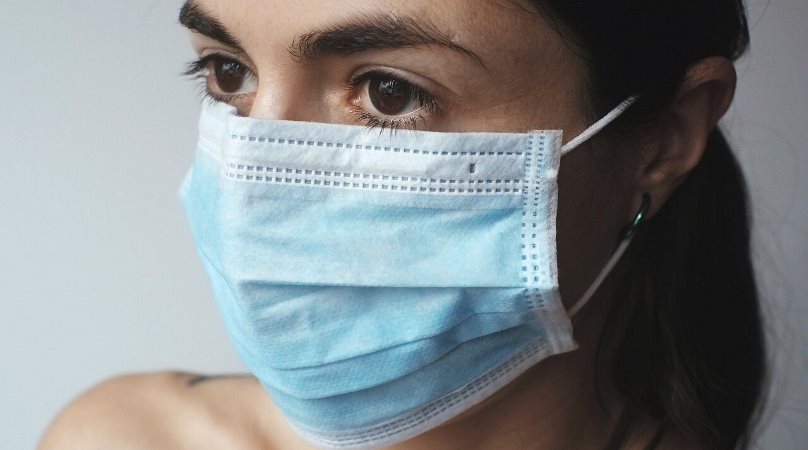Masks protect from COVID-19 but can trigger traumatic memories

By Aashish Mishra
Kathmandu, Aug. 18: Gita (name changed) finds the need to put on a mask terrifying. As a rape survivor, having her mouth covered triggers flashbacks to her assault.
Another survivor Rina (name changed) told The Rising Nepal that masks, or any facial covering, brought back traumatic memories that made her anxious. “The feeling is indescribable. As soon as I put on a mask, I get overwhelmed,” she said.
“For survivors who might have had their mouths covered or were strangled or choked as part of the abuse they were put through, putting on face coverings might bring back painful memories,” said Dr. Pratikshya Chalise, lecturer at the Department of Psychiatry in Kathmandu Medical College.
A proportion of survivors of sexual abuse and assault across the world are reporting an inability to wear face masks due to agonising recollections of the past and in the United Kingdom, the charity Rape Crisis England and Wales, which spoke to many survivors in the UK, also echoed what Dr. Chalise said.
“Some rape survivors had their mouths or noses covered or were smothered, as part of the violence they experienced,” Kate Russell, the national spokesperson for Rape Crisis England and Wales, told The Guardian in news published on August 10. “Covering their face and nose now can cause flashbacks and panic attacks.”
But while the UK legally exempts people from wearing masks if it causes them severe distress, Nepal doesn’t.
“Even if there were exemptions though, I still wouldn’t go out without a mask on. It is not safe to do that,” Gita said. “But at the same time, it is also difficult to go for long periods of time with that cloth on my face.”
So, she chooses to stay indoors as much as possible, which is not easy because she holds a full-time job. “I try to work from home as much as possible,” she paused for a few minutes. “It is daunting to think about going out these days.”
It must be noted that cases like Gita and Rina are only a small subset. Many other survivors that The Rising Nepal spoke to reported having no problems with facial coverings of any kinds. Several psychologists, including Chalise, also mentioned that they had never seen a case of such mask-triggered recollections in their careers.
Furthermore, while acknowledging the difficulty of some survivors, the current public health situation also mandatorily requires that masks be worn. So, the solution here is to deal with these cases on an individual basis.
According to Chalise, people facing such difficulties can try putting on masks in a safe place like home and slowly increase the amount of time they have it on. Breathing exercises, meditation and other relaxing activities can also help. Therapy also remains as a viable option.
Additionally, the Oxfordshire Sexual Abuse and Rape Crisis Centre has compiled a list of ways which details how some survivors of sexual violence are finding it possible to wear masks. This includes trialling different fabrics to find the one that is most bearable, putting calming scents on the mask and using grounding techniques such as tapping pulse points. The list is publicly available on the internet.
Recent News

Do not make expressions casting dout on election: EC
14 Apr, 2022
CM Bhatta says may New Year 2079 BS inspire positive thinking
14 Apr, 2022
Three new cases, 44 recoveries in 24 hours
14 Apr, 2022
689 climbers of 84 teams so far acquire permits for climbing various peaks this spring season
14 Apr, 2022
How the rising cost of living crisis is impacting Nepal
14 Apr, 2022
US military confirms an interstellar meteor collided with Earth
14 Apr, 2022
Valneva Covid vaccine approved for use in UK
14 Apr, 2022
Chair Prachanda highlights need of unity among Maoist, Communist forces
14 Apr, 2022
Ranbir Kapoor and Alia Bhatt: Bollywood toasts star couple on wedding
14 Apr, 2022
President Bhandari confers decorations (Photo Feature)
14 Apr, 2022









